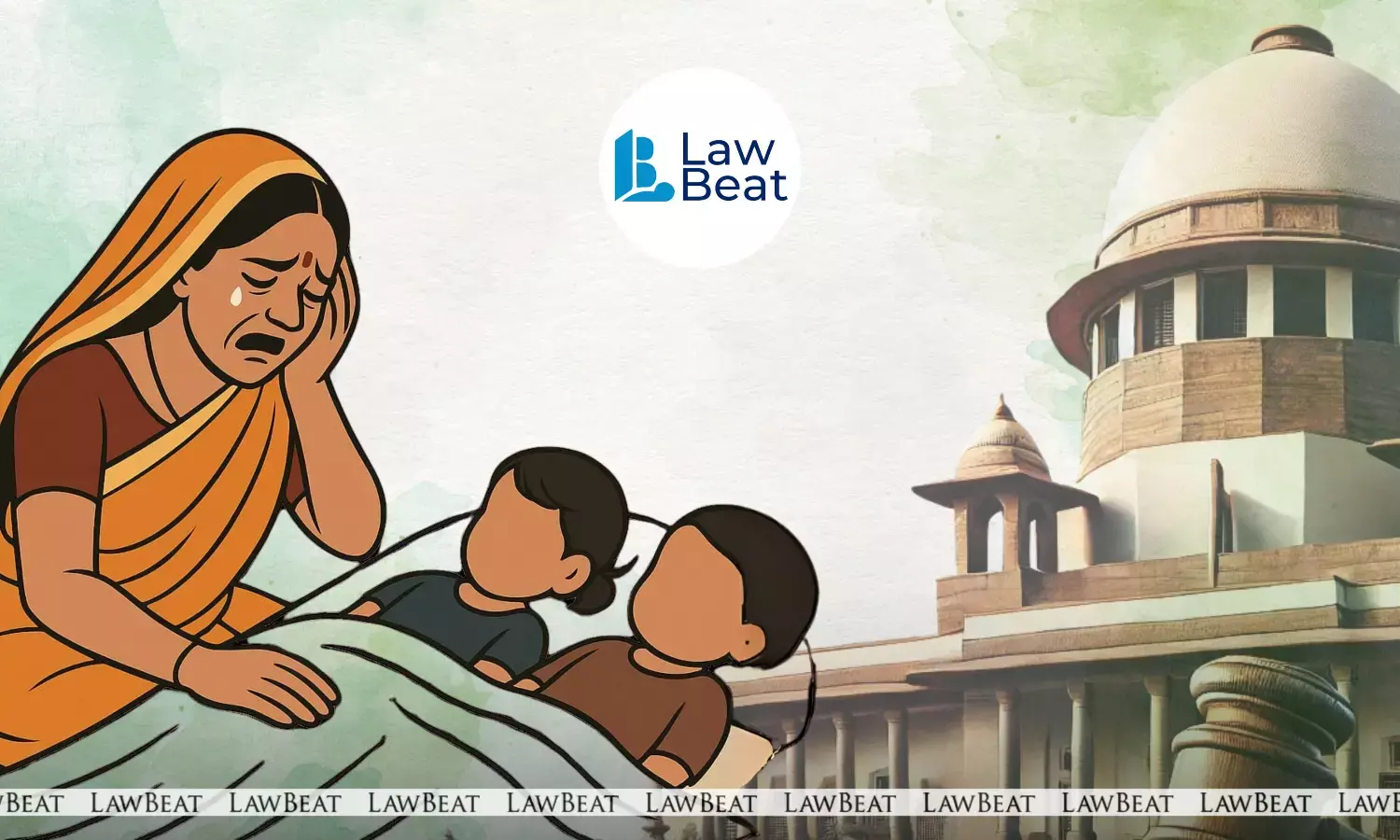Supreme Court acquits mother in case of killing two children

The Supreme Court has on August 6, 2025 acquitted a woman of the charges of killing her two children after picking up fight with her husband, saying her conviction, as recorded by the Trial Court and affirmed by the High Court is totally based on conjectures and surmises.
A bench of Chief Justice of India B R Gavai and Justice K Vinod Chandran held the conviction of the appellant, Shail Kumari is not sustainable in law at all.
Allowing her appeal, the court set aside the Chhattisgarh High Court's judgment of September 8, 2010 which upheld the trial court's decision of June 18, 2004.
The prosecution claimed on October 11, 2003, one Santosh Kumar Pandey, owner of a beetel shop, saw the appellant with her two children, son aged – 2 years and daughter aged – 4 months, going towards a water body situated nearby.
He observed that the appellant was taking the kids in a disordered condition and grew suspicious. He asked a nearby Rickshaw Puller to go and see where the appellant was going. After five to seven minutes, the Rickshaw Puller came back and stated that two children were floating in the water body.
Thereafter, he saw the woman going towards Railway track, he rushed towards her and somehow managed to pull her, when a train was coming.
In her statement, recorded under Section 313 of the CrPC, the appellant denied the circumstances appearing against her. She further stated that she had been in a state of tension, because her husband - Kanhaiya Lal Kharre had performed a second marriage. She also stated that she was innocent and that she had been falsely implicated in the case.
The trial court convicted her and sentenced her to life imprisonment. The High Court also dismissed her appeal in 2010.
A special leave petition was filed in 2017, the court condoned the delay and ordered her release on interim bail.
Her counsel said the present case is a case of no evidence. The High Court, only on the basis of conjectures and surmises, has convicted the appellant.
The state counsel, on the contrary, said the courts below, upon correct appreciation of evidence, have found that it is the appellant alone who is responsible for committing the crime in question.
Examining her appeal, the bench said, "Indisputably, the present case rests on circumstantial evidence. The law on conviction in the case of circumstantial evidence has been very well crystallized by this court in the case of Sharad Birdhichand Sarda Vs State of Maharashtra (1984)."
The bench pointed out the conviction in the present case could be sustainable only if the prosecution is in a position to prove the case beyond reasonable doubt and also establish a chain of events which is so connected to each other that it leads to no other conclusion than the guilt of the accused.
Though the prosecution has examined nine witnesses, the conviction was based solely on the evidence of beetel shop owner, the court noted.
However, the court noted, the cross-examination of this witness would reveal that his statement in examination in chief is a complete improvement than what was stated by him in his police statement. Whatever he narrated before the court does not find place in his police statement, it pointed out.
"As such, his evidence is totally contradictory and therefore totally unworthy," the bench said.
Referring to Vadivelu Thevar Vs State of Madras (1957), the bench pointed out, this court has classified the witnesses into three types: (i) wholly reliable, (ii) wholly
unreliable, and (iii) neither wholly reliable nor wholly unreliable.
"The difficulty arises only in the case of third type of witnesses, where the court is required to separate the chaff from grain to arrive at a conclusion," the bench said.
In the case, the court noted, apart from the testimony of beetel shop owner, there was nothing to connect the present appellant with the crime in question.
The prosecution has not even examined the Rickshaw Puller who was stated to have seen the appellant going towards the pond and the children floating in the lake. The testimony of beetel shop owner being unreliable, at the most, can be treated as hearsay evidence, the court held.
"In that view of the matter, we are of the considered opinion that the conviction, as recorded by the Trial Court and affirmed by the High Court is totally based on conjectures and surmises. We are of the considered view that the conviction of the appellant is not sustainable in law at all," the bench said.
Case Title: Shail Kumari Vs State of Chhattisgarh
Judgment Date: August 6, 2025
Bench: Chief Justice of India B R Gavai and Justice K Vinod Chandran
